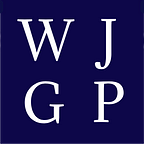Editor’s Note: Our Civic Duty
In an atmosphere divided with different opinions, people are unfortunately enclosed within their echo chambers, surrounded by self-reinforcing information. This creates a fertile ground for the emergence of a “Post-Fact” world. Living in this “Post-Facts” world often becomes burdensome for people to accept the differences between false and factual information.
This concern seems to stem from the issue that society today treats ignorance and the act of rejecting established knowledge as a form of virtuous liberty and independence. Thus, there has been a growing sense of cynicism to expert beliefs in this age fueled by Google searches, blogs along with shallow Wikipedia knowledge. As a result, incapable of analyzing their partialities, people resort to searching and agreeing to answer that recondition or reaffirm their preceding assumptions. A recent study at the Ohio State University, for instance, investigated on the reaction of both conservatives and liberals to factual stories. The study concluded that the majority in both groups disregarded stories, even those with scientific evidence if the stories conflicted with their world view.
Therefore, of the many initiatives one can take, it becomes important to develop a sense of critical judgment. Prior to the age of the world-wide web, one had to turn pages of Encyclopedia books for trustworthy and factual information. With the rise of the internet, however, it becomes vital, especially for young scholars to be able to gauge the reliability and accuracy of the information they are provided with online.
It also becomes important to develop global competency, specifically for students in college. Now more than ever, it is important for young scholars to interact with diverse ideas and become open to intercultural engagement. The Organization for Economic Cooperation and Development (OECD), for instance, changed its approach to conducting the Program for International Student Assessment (PISA). In addition to the current sections on Mathematics, Science and Reading, the test will now include a “Global Competency” section.
Therefore, while sometimes it may seem easier to collaborate with people in the same echo chamber, as students in college, it is vital that we challenge ourselves to step outside the echo chamber. Amid the political division not only within the United States but in many parts of the world, the responsibility to reach across the aisle, to have a sense of critical judgment, and to practice self-awareness have all now become a civic duty.
This sense of civic duty is what the principles of democracy depend upon. As Tom Nichols, a professor at the Naval War College puts it, people often think that democracy is “a state of actual equality, in which every opinion is as good as any other, regardless of the logic or evidentiary base behind it”. However, democracy is rather a “condition of political equality in which all get the franchise and are equal in the eyes of the law”. This condition, thus only functions when there is a productive and open engagement between people with different ideas, viewpoints, and beliefs, backed by substantial evidence.
